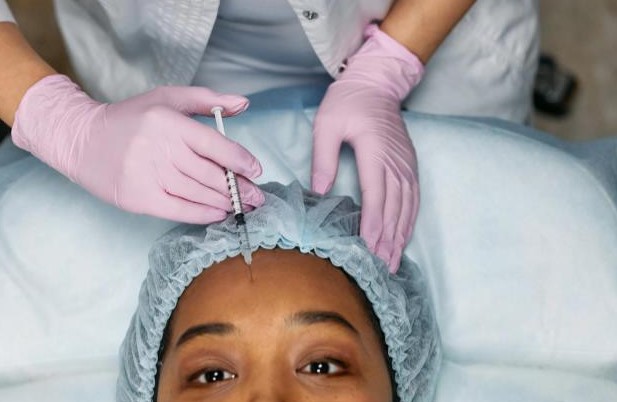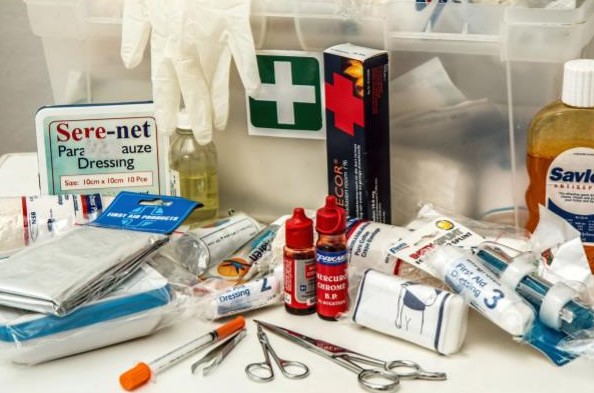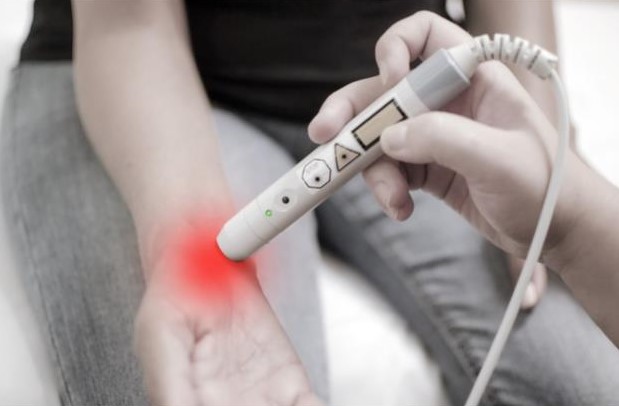29
Aug 2023
Top Ways to Make Recovery Easier for Your Loved One After Surgery
Published in General on August 29, 2023

Major surgery carries a lot of risk for the patient, and it can be difficult to watch your loved one go through it. Not only do they have to face what could happen during recovery, but there’s also the concern that being away from you might make their recovery process longer or more difficult. While there are some things you can’t control in this situation, there are many small steps you can take to help them cope with any physical and emotional effects of surgical recovery. In this blog post, we’ll explore those top ways to support your loved one as they recover from surgery.
Hire cleaning services for them
One of the most important things you can do for your loved one’s recovery is to make their home environment as stress-free and comfortable as possible. If they are unable to clean and take care of household tasks, hiring a cleaning service or other helping hand can be very beneficial to them. This could include cleaners, grocery shopping services, pet sitters, errand runners, and more. You can find house cleaning in Brisbane, for instance, if you’re located in Australia. This will allow your loved one more time to rest and focus on getting better. Cleaning can also reduce allergens in the air that may cause further health complications. When it comes to recovery support, this is one of the best ways to make sure your loved one’s home environment is perfect for a successful recovery. They will be grateful for the extra help.
Prepare nutritious meals ahead of time and freeze them
Knowing that your loved one needs nutritious meals but may not have the energy to cook can be overwhelming. To help make sure your loved one has healthy meals, try preparing and freezing them in advance. Make sure you stick with nutritious options like lean proteins, fruits, vegetables, and whole grains. And don’t forget about snacks! Healthy snack options like nuts, yogurt, or hard-boiled eggs can keep their energy up during the day.
In addition to preparing meals, you can also help your loved one plan out their eating schedule. Eating smaller meals throughout the day is often easier for someone recovering from surgery than a large meal. And make sure they have plenty of fluids! Staying hydrated is key for aiding in post-surgery healing and recovery.
Meals-on-wheels
If your loved one isn’t able to leave the house or doesn’t have a lot of energy for cooking, then look into Meals-On-Wheels. This program provides meals to those who are in need due to age, disability, or illness. Depending on where you live, there may even be options that offer specialized nutrition for those recovering from surgery. It’s a great way to make sure they have healthy meals without having to leave the house.
Furthermore, if you are able to leave the house, consider grocery delivery services. Many stores now offer online ordering and delivery, so you can have groceries delivered directly to your loved one’s home. This way they don’t have to leave the house and waste energy that could be going towards recovery.
Make sure to have plenty of extra pillows, blankets, and other comforts on hand for added comfort
As the body recovers, it can be uncomfortable and even painful. Having extra pillows and blankets at the ready can help make sure your loved one is comfortable as they rest and recover. You can also add small touches to their room that will make them feel more relaxed like a scented candle or some fresh flowers.
In addition, you should make sure there are any necessary medical supplies on hand. This could include prescription medications, bandages, painkillers, and heat/cold packs. You should also make sure you have any necessary equipment like a cane or walker if needed. The more things you can provide for your loved one in their recovery period, the better their chances of successful healing will be. When it comes to recovery support, being prepared is key.
Create a positive atmosphere and be there for emotional support
As your loved one recovers, they may need emotional support as well as physical support. Letting them know that you are there for them and that you will help in any way possible can make a huge difference in their outlook. Even if you can’t be there in person, try to find ways to stay connected with daily phone calls or video chats.
Create a positive atmosphere by helping them focus on the things that make them happy. Whether this is watching movies together or listening to their favorite music, it will help keep their spirits up and aid in recovery. Finally, don’t forget to show your love and appreciation. Let them know that you are proud of their strength and courage during this challenging time.
Get a mobile phone holder so that your loved one can easily reach out to family and friends
Recovering from an injury or medical procedure can be tough, both physically and emotionally. One of the ways to ease the burden is to make it easier for your loved one to stay in touch with family and friends. A mobile phone holder can be a handy tool for this purpose. With a holder, your loved one can easily access their phone without having to reach or strain themselves. This way, they can catch up with loved ones, keep up with important messages, and feel connected to those who care about them during a difficult time. A mobile phone holder may seem like a small gesture, but it can make a big difference in helping someone stay connected and positive while on the road to recovery.
Additionally, providing your loved one with a tablet can help them stay entertained and connected. This way, they can keep up to date on news or watch movies and shows without having to leave the bed. Tablets also provide access to online resources such as health education websites. Similarly, you could set up an e-reader with pre-loaded books so that they can enjoy reading while they rest and recover.
Invite family or friends over to provide companionship and help out with tasks
There's nothing like spending time with loved ones, especially during a time of recovery. Inviting family or friends over can be very helpful in providing companionship and help with tasks. If your loved one isn’t up to traveling, having visitors come to them can be perfect for getting the emotional support they need.
If you can’t have visitors come, then consider setting up video chat visits so your loved one can still feel the company of their family and friends. Inviting visitors over or setting up video chats is a great way to provide emotional support during recovery. There is nothing like having the support of close friends and family during a difficult time.
Stay connected with your loved one’s medical team
In addition to providing physical and emotional support, it's also important to stay connected with your loved one’s medical team. Keep them updated on any changes in their health or recovery progress. This can help the medical team provide better care and ensure that your loved one is getting the best treatment possible.
It can also be helpful to talk to their doctors or nurses about any specific concerns or questions you have. Don’t hesitate to ask for advice, guidance, or clarification on anything related to recovery. Being informed will help you be more prepared for what lies ahead.
Gather resources and plan for the future
It's important to think ahead when it comes to recovery. So before your loved one begins the healing journey, try to gather resources such as doctor referrals and support groups. You can also plan ahead by researching insurance coverage and long-term care options in case they are needed down the line.
Having a plan for the future is key when it comes to recovery, so spend some time exploring different options with your loved one. This way, you will both have peace of mind knowing that you are prepared for whatever comes in the future.
Your loved one's recovery journey doesn't have to be a difficult one. By providing physical, emotional, and medical support, you can make sure they have everything they need during this challenging time.
Set up a routine for taking medication, meal times, physical activity, and rest periods
When it comes to managing our health, establishing a routine can be incredibly helpful. Whether it be taking medication at the same time each day or scheduling periods of physical activity, having a routine can make recovery easier.
For your loved one, make sure to establish routines for taking medication, meal times, and rest periods. This will help ensure they are sticking to their treatment plan and getting enough rest. You could also set up routines for activities like physical therapy or yoga if your loved one is up to it.
The thought of recovery can be daunting, but having a plan in place and routines to follow can make the process easier. With the right support system in place, you can provide your loved one with the best chance of successful healing.
Research activities that can be done from home
Recovering from an illness or injury can be a long and challenging process. However, there are plenty of research activities that can be done from home to make the journey to wellness more enjoyable. Why not look up some simple recipes your loved one can make that are healthy and easy to prepare? Or you could find some fun activities they can do from the comfort of their bed.
You could also research different meditation or yoga practices for them to try out. These activities can help relax the mind and keep them feeling positive while recovering. This way, you'll both be able to find things to look forward to during the recovery process, instead of dwelling on what they can't do.
If you keep your loved one's mental and physical health in mind when planning activities, recovery doesn’t have to be a daunting experience. With plenty of options available, it can even become an opportunity for growth and learning.
Take care of their pets
If your loved one has a pet, make sure to take care of them while they are recovering. Pets can be great companions in times of need and caring for them can give your loved one something to focus on.
Organize someone to come over and look after their furry friend while your loved one recovers. This could involve taking the pet for walks, feeding them, or providing general companionship. Having a pet can make all the difference during recovery and can help relieve stress and provide comfort.
Taking care of their pet is one way to show your support and let them know you’re thinking of them during this difficult time. It will also give them something to look forward to when they get better and can start spending more time with their beloved pet.
Take breaks from recovery
Finally, it's important to remember to take breaks from recovery. While taking care of your loved one is essential, you should also ensure that you're taking care of yourself too. Taking regular breaks will help recharge your batteries so you can be there for them when they need you.
So don’t forget to take some time for yourself and do something that relaxes and rejuvenates you. Whether it be going for a walk in nature, reading a book, or talking with friends, make sure to set aside some time each day to recharge your batteries.
To ensure a successful and comfortable recovery for your loved one, it is important to have a plan. Meal prep, extra comfort items, and phones for communication are essential. Inviting family or friends to visit, setting up a routine, and providing education on activities that can be done from home are also included in setting up proper care for your loved one. Having the right homecare setup in place ready for them when they arrive home from the hospital will help ease their transition back into everyday life. They can also stay temporarily in a fully furnished apartments near the hospital while recovering. Hospital Stays can help provide these accommodations suitable for their needs. With a few adjustments, you can create an environment that will aid recovery and bring peace of mind.





